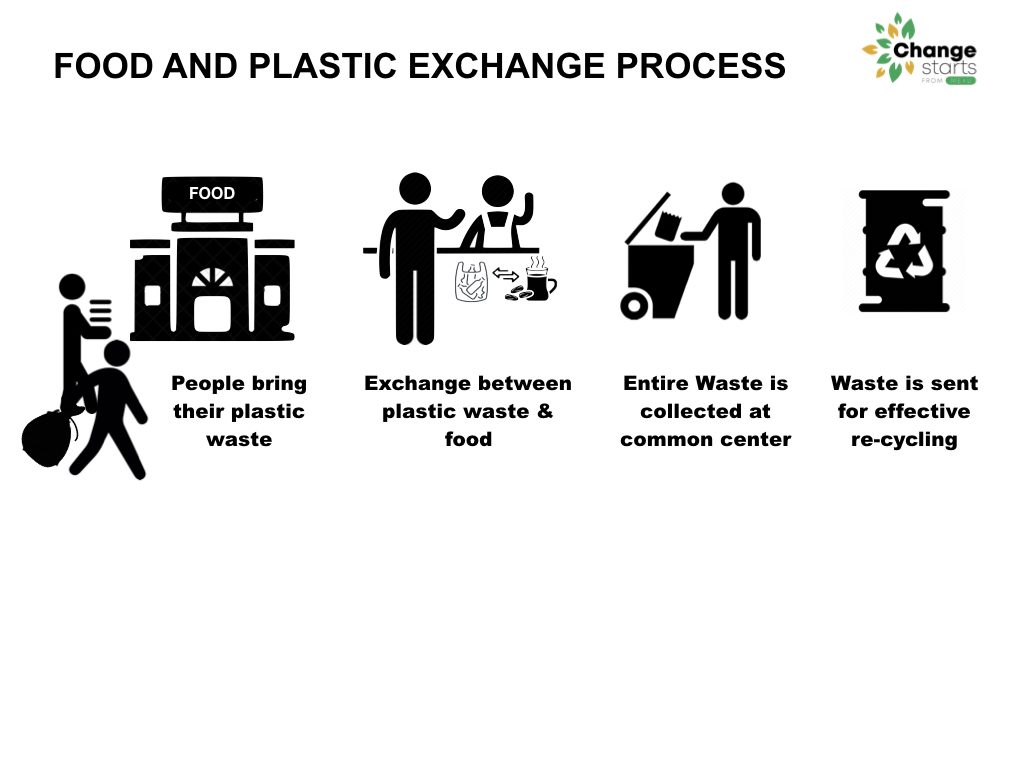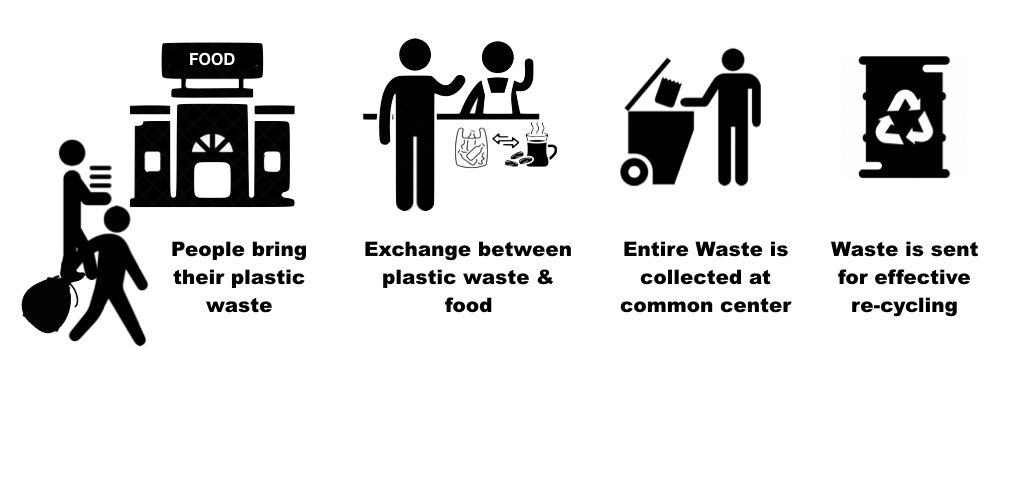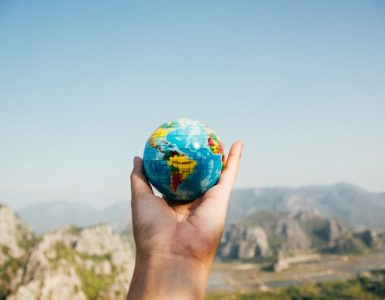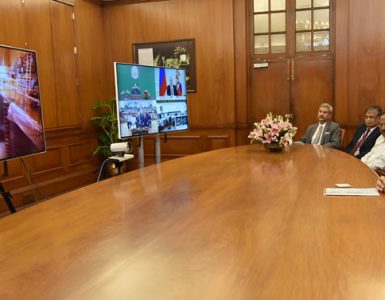If you are in the Dahod district of Gujarat and want to get your morning tea for free, then just walk into this newly opened cafe and hand over half-a-kilogram of plastic, no money needed.
Want some snacks as well? Then please give one kilogram of plastic.
This Gujarat cafe is the latest addition to the growing list of these small food centers which have sprung up in several parts of India. The idea is simple, to encourage people to bring the plastic to a commonplace and give them something in return – free food and snacks in this case. Another unique thing about the Gujarat cafe is that the snacks are being prepared by women under the Gujarat government’s ‘Sakhi Mandal’ scheme which aims to empower women in rural areas and provide employment opportunities.
Let’s look at a few other examples
Chattisgarh
In October 2019, Chhattisgarh became the first state to open such a cafe, which provide free food in exchange for plastic waste. The ‘Garbage cafe’ is situated in Ambikapur, which bagged the title of the second cleanest city in India. The tagline of the cafe says, ‘More the waste better the taste’.
Orissa
In December 2019, Bhubaneswar Municipal Corporation (BMC) came up with the ‘Meal for Plastic’ initiative in collaboration with the United Nations Development Programme (UNDP) under the Orissa government’s Aahar Scheme. Anyone can walk into any of the Aahar Centres in Bhubaneswar City and will be served a meal in exchange for a half kilogram plastic waste.
Maharashtra
February 2020, saw a different kind of beach party was organized at Mumbai’s Versova beach, where people can exchange plastic waste for free food. People could exchange 1 kg of plastic for some traditional Indian savories like Samosa, Jalebi, and Chole Bathure.
How does it work?
The process is pretty simple – people need to bring the plastic waste to a designated center; the waste collected could be their personal or collected from friends & family. The center will measure the quantity of plastic waste, and based on the value will handover the food in exchange.
The more the number of people visit these centers, the greater the quantity of the waste collected. The entire collection is sent for recycling

How does it help?
- It provides people an incentive to collect the plastic waste, which is generally thrown away randomly.
- The cafe or the food exchange location is more like a collection point where people will deposit the waste.
- Free goodies such as tea or meals act as a way to attract more number of people.
- It will reduce the litter on the streets and also provides waste segregation at the source itself i.e. more often the plastic waste gets mixed with wet and other kinds of waste, which ends up in landfills.
- The plastic waste is easily transported for further re-cycling.
Let’s hope there are many more such cafes with an exchange scheme in other parts of India and globally as well to create a plastic-free society.






Add comment